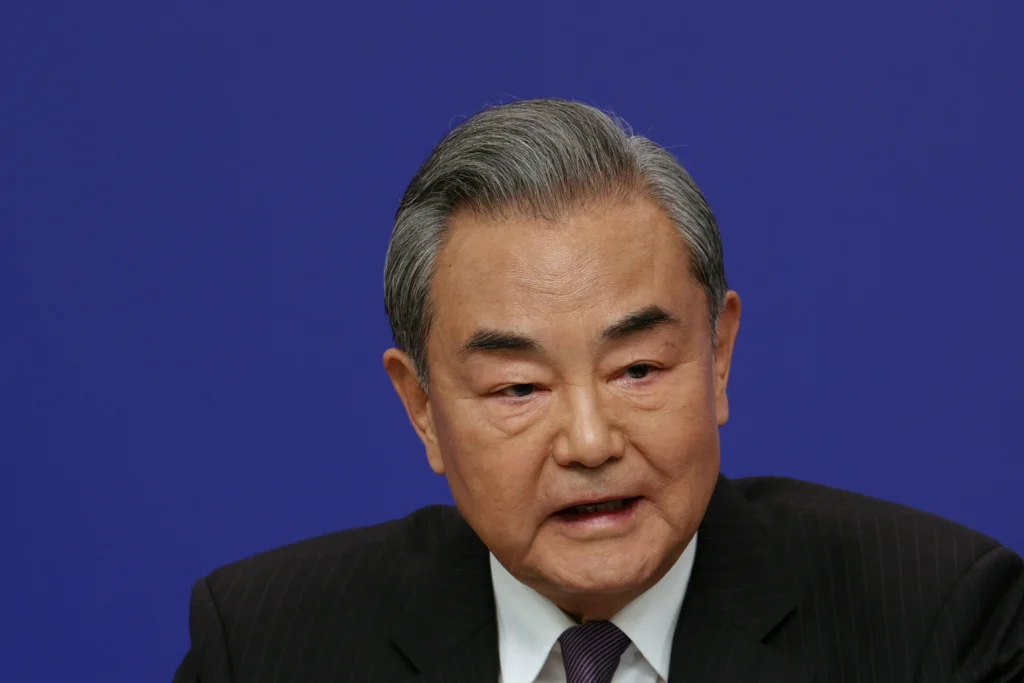- Web
- Feb 05, 2026
China advocates for global peace while reinforcing unwavering ties with Russia
-

- Web Desk Karachi
- Mar 07, 2025

BEIJING: China’s top diplomat has positioned the country as a pillar of stability amidst the upheaval caused by Donald Trump’s economic policies, particularly as the US President’s recent decision to double tariffs on Chinese imports to 20 percent adds fuel to an ongoing global trade war. At an annual press briefing in Beijing, Foreign Minister Wang Yi stressed that China “brings much-needed stability to a changing and turbulent world,” asserting that the country is committed to defending global fairness and maintaining world peace.
Wang’s remarks come against the backdrop of escalating tensions between the US and China, with Trump’s tariff increases impacting approximately $1.5 trillion in annual imports. This trade conflict has wider implications, affecting not only China but also key partners like Canada and Mexico. In addition, Trump’s foreign policy approach, including his dialogue with Russia, has raised concerns among European allies, who fear a shift in US priorities that could undermine their interests—particularly regarding Ukraine.
Despite these tensions, Wang affirmed the enduring nature of the China-Russia relationship, stating, “The China-Russia friendship will not change. It is a constant in a turbulent world, rather than a variable in geopolitical gains.” He also reiterated China’s call for peace talks to resolve the conflict in Ukraine, although he refrained from addressing whether Beijing would deploy peacekeeping troops.
China eyes ambitious hydropower dam project in Tibet
Chinese President Xi Jinping recently reaffirmed strong ties with Russian President Vladimir Putin on the third anniversary of Russia’s invasion of Ukraine, signalling that any potential thawing of relations between Russia and the US would not adversely affect their partnership. While China has publicly supported discussions between the US and Russia to end the conflict, it remains cautious about becoming overly involved in negotiations that could draw attention away from Beijing’s interests.
Regarding China-Europe relations, Wang emphasized the importance of enhanced communication in a climate of uncertainty. Historically, China has sought to cultivate Europe as a counterbalance to US pressures, but this dynamic has shifted since former President Joe Biden succeeded Trump, successfully rekindling transatlantic ties that had grown strained under the previous administration.
Now, Trump’s apparent abandonment of Ukraine has alarmed European nations, potentially presenting China with an opportunity to strengthen its economic ties with major markets like Germany and France. This shift could be particularly advantageous for Beijing as it braces for even steeper US tariffs on Chinese goods.
As the Chinese economy grapples with challenges such as weak domestic demand and a downturn in the housing market, its government has adopted a measured approach to Trump’s policies. China has responded to US tariffs with targeted measures while leaving the door open for further discussions, although there are signs of rising frustration.
In addressing Trump’s “America First” policy, Wang remarked that a “big country” should not prioritize self-interest at the expense of principles or engage in bullying behaviour toward the weaker nations. This assertion encapsulates China’s stance as it navigates a complex global landscape marked by increasing tensions and shifting alliances.




